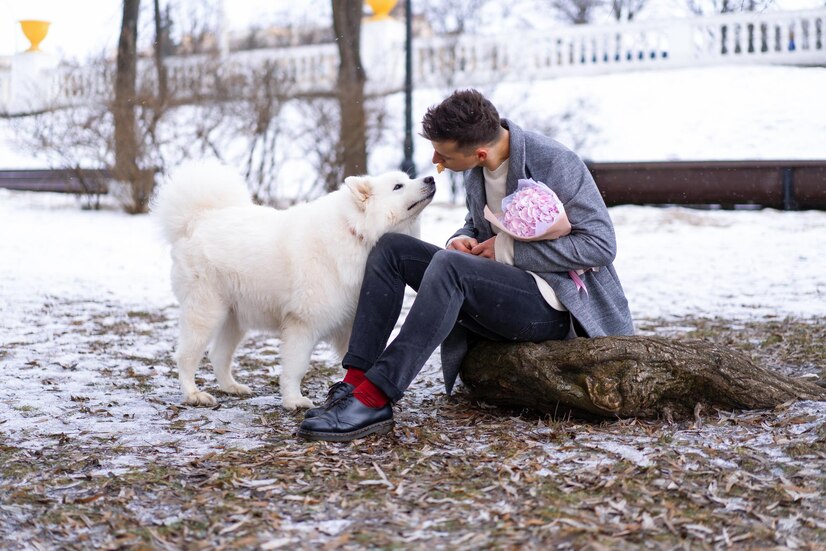Great Pyrenees typically do not kill other dogs. They are known for their calm and gentle nature.
The Great Pyrenees is a large, majestic breed known for its protective instincts and loyalty. Originally bred to guard livestock, these dogs have a calm demeanor. While they are generally friendly towards other dogs, proper socialization is crucial. Their size and strength require responsible ownership to ensure harmonious interactions.
Training and early exposure to various environments help in nurturing their gentle nature. Owners should always supervise interactions with smaller pets. Understanding the breed’s characteristics can lead to a balanced and well-behaved Great Pyrenees. Proper care and attention can help these gentle giants coexist peacefully with other dogs.
Temperament Of Great Pyrenees
Great Pyrenees are generally gentle and protective, but they can display aggression towards other dogs if they feel threatened. Proper socialization and training help minimize these risks.
General Traits
The Great Pyrenees is known for being calm and gentle. They are very loyal and protective. These dogs are often patient and affectionate. They can be stubborn sometimes. Training them requires patience and consistency.
Interaction With Other Dogs
Great Pyrenees can get along well with other dogs. Early socialization is very important. They are naturally protective of their family and territory. Sometimes, they may show aggression if they feel threatened. Supervision is needed during playtime. This ensures safety for all dogs involved.
Origin Of The Myth
The myth that Great Pyrenees will kill other dogs stems from misunderstandings about their protective nature. These dogs are often gentle and patient, especially when properly socialized.
Historical Background
The Great Pyrenees is known as a guardian dog. They protected livestock from wolves and bears. People believed they were aggressive because of their protective nature. These dogs were bred to be strong and fearless. They had to defend their flock at all costs. This history led to the myth that they are dangerous.
Common Misconceptions
Many think Great Pyrenees will kill other dogs. This is not true. They are actually very gentle and friendly. Their protective instinct is for livestock, not for attacking dogs. They can be great companions with proper training and socialization. Owners need to introduce them to other dogs early. This helps them learn how to behave. Most Great Pyrenees get along well with other pets.
Factors Influencing Behavior
Great Pyrenees’ behavior towards other dogs depends on socialization, training, and individual temperament. Early exposure and positive reinforcement reduce aggression risks.
Training
Proper training is very important for Great Pyrenees. They need to learn commands and boundaries. Consistent training helps them understand what is acceptable behavior. Positive reinforcement works best with this breed. They respond well to treats and praise. A well-trained dog is less likely to show aggression.
Socialization
Early socialization is crucial for Great Pyrenees. They should meet other dogs and people when they are puppies. This helps them become more friendly and less aggressive. Regular playdates with other dogs can help. A well-socialized dog is usually calmer and more balanced.
Environment
The environment where a Great Pyrenees lives can affect their behavior. A calm home is best. Crowded places or small spaces may stress them. They need room to roam and exercise. Proper care and attention make them feel safe and happy. A happy dog is less likely to harm others.
Case Studies
Great Pyrenees are often gentle giants. They are known for their calm demeanor. Many families report positive interactions with other dogs. These dogs often play well together. They can become friends quickly. Proper socialization is key. Introducing them to other dogs early helps. Supervised playdates are beneficial.
Some Great Pyrenees may show aggression. This is not common but can happen. Aggression often stems from fear. Past trauma can also be a cause. Supervision is crucial during interactions. Training can help reduce aggressive behavior. Consulting a professional trainer is advised. They can provide techniques to manage aggression.
Expert Opinions
Great Pyrenees can coexist with other dogs if properly socialized. Expert opinions highlight their protective instincts, sometimes leading to aggression. Training and supervision are crucial for peaceful interactions.
Veterinarian Insights
Veterinarians agree that Great Pyrenees are usually gentle. These dogs are known for their calm nature. They rarely show aggression. Proper training is important. Socialization helps prevent issues. Regular vet check-ups are crucial. This breed often gets along with other dogs.
Animal Behaviorists’ Views
Animal behaviorists also find Great Pyrenees to be friendly. These dogs have a protective instinct. They guard their family well. Sometimes, they may act out if they feel threatened. Training can manage this behavior. Supervision during playtime is advised. They usually do not kill other dogs.
Preventing Aggression
Start training your Great Pyrenees early. Socialization is very important. Introduce them to other dogs. Use positive reinforcement methods. Give treats and praise. Keep training sessions short. Consistency is key. Always be patient with your dog. Never use harsh punishment. This can make aggression worse.
Supervise interactions with other dogs. Keep a close eye on body language. Separate them if needed. Provide plenty of exercise. A tired dog is less likely to be aggressive. Feed separately to avoid food aggression. Give each dog its own space. Consult a professional if aggression persists. A trainer can help with specific issues.
Another post: How Much Do Australian Shepherds Shed
FAQ
Do Great Pyrenees Get Along With Other Dogs?
Great Pyrenees can get along with other dogs if properly socialized from a young age.
Are Great Pyrenees Aggressive Towards Other Dogs?
They are generally not aggressive but can be protective, especially if they sense a threat.
How Can I Prevent Dog Fights?
Proper training and early socialization help prevent conflicts and ensure harmonious interactions among dogs.
Conclusion
Understanding the Great Pyrenees’ temperament is crucial for peaceful cohabitation with other dogs. Proper training and socialization are key. Always supervise interactions to ensure safety. With the right approach, Great Pyrenees can coexist harmoniously with other pets. Prioritize their needs for a happy, balanced home environment.

